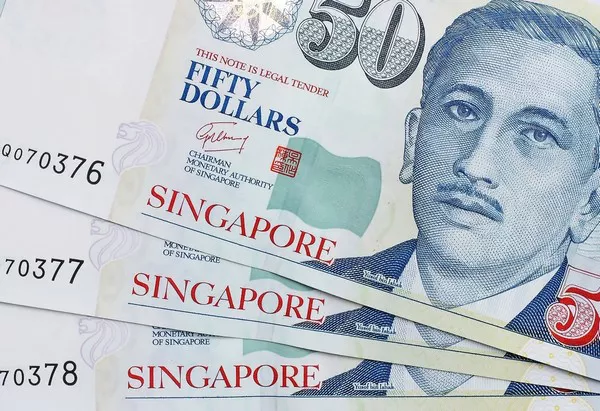The foreign exchange market is a dynamic and ever-changing realm that impacts individuals, businesses, and governments worldwide. As part of this global financial landscape, the exchange rates of various currencies are continuously fluctuating. These fluctuations are essential for international trade, tourism, and investment. Among the multitude of currencies in circulation, the Singapore Dollar (SGD) is of particular interest, given its prominence in the Asian financial sector and as a widely traded currency worldwide. In this article, we will delve into the concept of exchange rates, explore the factors influencing the buying and selling rates of the Singapore Dollar today, and examine some practical tips for navigating this complex market.
Understanding Exchange Rates
Exchange rates are the relative values of one currency compared to another. They are essentially the price at which one currency can be exchanged for another. Exchange rates fluctuate constantly, and they can have a significant impact on international trade, tourism, and investment. They play a crucial role in determining the competitiveness of a country’s goods and services in the global market.
Exchange rates are typically quoted in two forms: the buying rate and the selling rate. The buying rate, also known as the bid rate, is the rate at which a bank or currency exchange service is willing to purchase a foreign currency from you. On the other hand, the selling rate, also known as the ask rate, is the rate at which they are willing to sell a foreign currency to you. The difference between the buying and selling rates is known as the spread, which represents the profit margin for the currency exchange service.
Factors Influencing the Exchange Rates of the Singapore Dollar Today
Economic Conditions: The state of Singapore’s economy is a significant driver of SGD exchange rates. Factors such as GDP growth, inflation, and employment data can influence whether investors perceive the SGD as an attractive or risky investment.
Interest Rates: Central banks, such as the Monetary Authority of Singapore, set interest rates. Higher interest rates can attract foreign capital, increasing demand for the SGD and driving up its value.
Political Stability: Political events and stability in Singapore can impact investor confidence and, in turn, the exchange rate. A stable political environment is typically seen as favorable for currency value.
Global Economic Factors: International events, such as trade tensions, geopolitical conflicts, or changes in global economic conditions, can significantly impact exchange rates. Investors often seek safe-haven currencies like the SGD during times of uncertainty.
Speculation: Traders and investors in the foreign exchange market engage in speculation, which can lead to short-term fluctuations in exchange rates.
Market Sentiment: The sentiment of traders and investors can heavily influence exchange rates. Positive or negative news about Singapore’s economy or political situation can lead to significant buying or selling of the SGD.
Government Intervention: Some governments, including Singapore’s, may intervene in the foreign exchange market to stabilize or influence their currency’s value.
Supply and Demand: Basic economic principles of supply and demand play a critical role in exchange rate determination. If there is high demand for the SGD and limited supply, its value will rise.
External Shocks: Unexpected events like natural disasters, terrorist attacks, or health crises (e.g., the COVID-19 pandemic) can have a significant impact on exchange rates.
Practical Tips for Navigating the Exchange Rates of the Singapore Dollar Today
Stay Informed: Keep yourself informed about the latest economic developments in Singapore and around the world. Read news, follow financial reports, and monitor central bank policies to understand how these factors might affect exchange rates.
Consider Hedging: If you are engaged in international trade or investments, consider using hedging strategies to protect against unfavorable exchange rate movements.
Use Reliable Currency Exchange Services: When buying or selling SGD, choose reputable currency exchange services or banks that offer competitive rates and low spreads. Be mindful of fees and commissions.
Plan Your Transactions: Timing is crucial in the foreign exchange market. Avoid making impulsive currency exchange decisions, and plan your transactions when exchange rates are favorable.
Diversify: Diversification of your currency holdings can help spread risk. Holding a mix of currencies can mitigate the impact of fluctuations in the SGD exchange rate.
Consult Experts: If you’re unfamiliar with foreign exchange markets or dealing with substantial sums, consult with financial experts or currency specialists who can provide guidance and assistance.
Monitor Long-Term Trends: While short-term fluctuations are common, it’s also essential to consider long-term trends when dealing with SGD. Understanding the historical performance of the currency can help in decision-making.
In conclusion, the exchange rates of the Singapore Dollar today are influenced by a complex interplay of economic, political, and global factors. These rates are not static but constantly fluctuating, which necessitates vigilance and a thoughtful approach when dealing with SGD. By staying informed, employing prudent strategies, and considering expert advice, individuals and businesses can navigate the foreign exchange market with confidence and make informed decisions when buying or selling Singapore Dollars.


